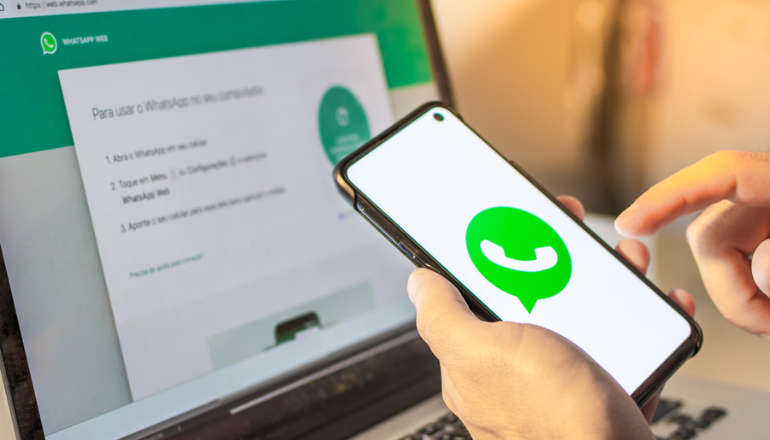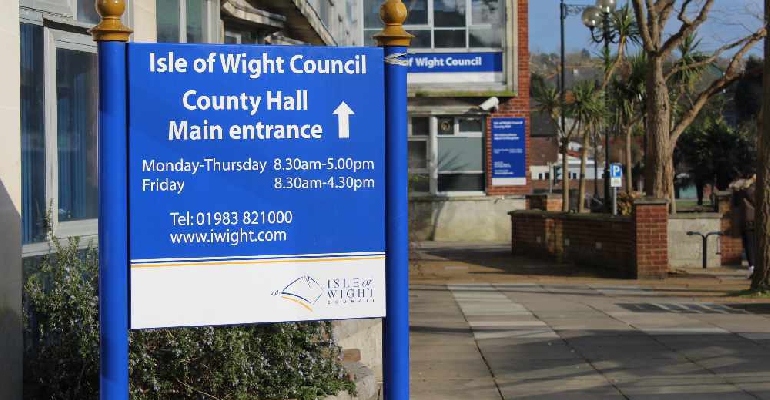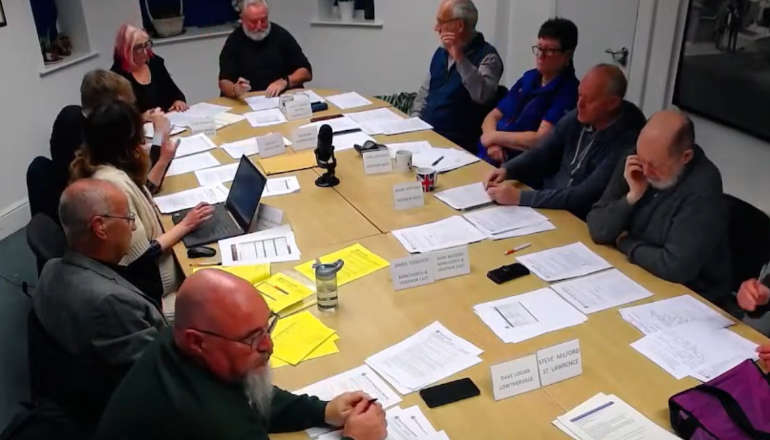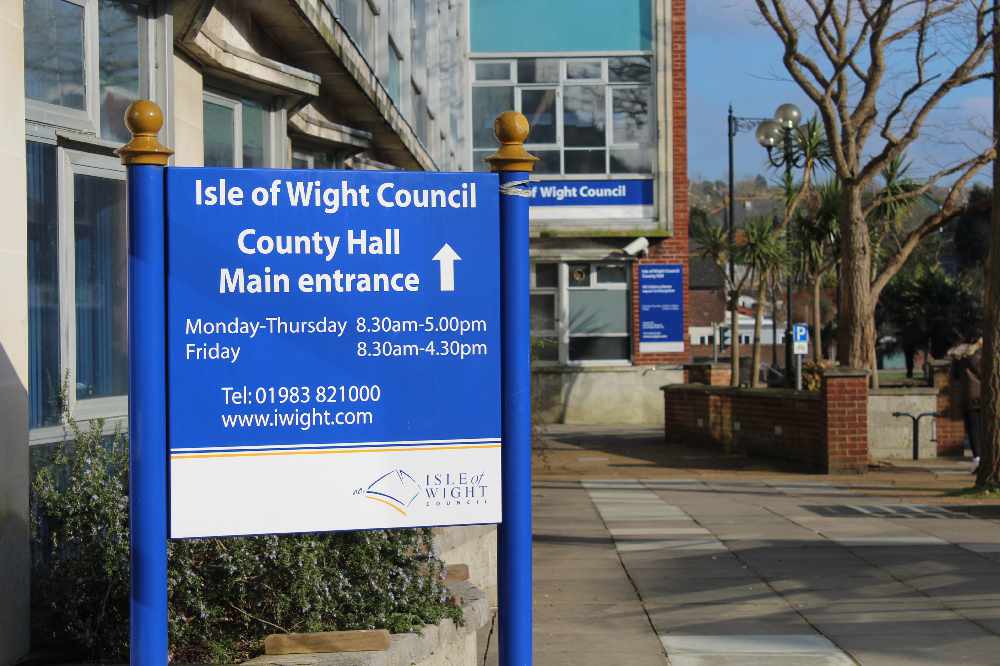
Large community and religious WhatsApp groups are being targeted by scammers who infiltrate them to try and deceive their members into sending them money.
Since January of this year, 268 people have reported falling victim to this scam, including people on the Isle of Wight.
The fraud often begins when a member of the group receives a WhatsApp audio call from the fraudster, pretending, or claiming, to be a member of the group.
This is done in order to gain the individual’s trust, and often the scammer will use a false profile picture and / or display name, so at first glance it would appear to be a genuine member of the group.
The fraudster will then call the victim and say they are sending a one-time passcode which will allow them to join an upcoming video call for group members.
The scammer then asks the victim to share this passcode with them so they can be “registered” for the video call.
What’s really happening is that the scammer is asking for a registration code to register the victim’s WhatsApp account to a new device where they then “port” their WhatsApp profile over.
Once the fraudster has access to the victim’s WhatsApp account, they will enable two-step verification which makes it impossible for the victim to access their account.
The scammer will then message other members of the group, or friends and family in the victim’s contacts, asking them to transfer money urgently as they are in desperate need of help.
Oliver Shaw, Detective Chief Superintendent and Head of Action Fraud and the National Fraud Intelligence Bureau (NFIB) said:
“WhatsApp continues to be a popular platform for community and religious groups, but sadly also for fraudsters. Here, the scammers rely on the goodwill of group members and their intrinsic desire to help others in distress.
“We urge people always to be wary when receiving contact via WhatsApp or other messaging platforms.
"To make your account more secure, we advise setting up two-step verification to provide an extra layer of protection."
Analysis of Action Fraud reports indicate that victims targeted by this scam are often part of large WhatsApp community, alumni and academic, work groups, and religious groups (such as church or prayer groups).
What can you do to avoid being a victim?
- Never share your account’s two-factor authentication (2FA) code (that’s the six digit code you receive via SMS).
- Set up two-step verification to give an extra layer of protection to your account. Tap Settings > Account >Two-step verification > Enable.
- THINK. CALL. If a family member or friend makes an unusual request on WhatsApp, always call the person to confirm their identity.
- You can report spam messages or block a sender within WhatsApp. Press and hold on the message bubble, select ‘Report’ and then follow the instructions.
If you have been a victim of fraud or cybercrime, report it at www.actionfraud.police.uk or by calling 0300 123 2040. In Scotland, victims of fraud and cybercrime should report to Police Scotland on 101.


 Call 111 First - Islanders Urged To Use The Correct Services This Half Term
Call 111 First - Islanders Urged To Use The Correct Services This Half Term
 Children And Families Safeguarding Now Under Isle of Wight Council Control
Children And Families Safeguarding Now Under Isle of Wight Council Control
 Ryde Sea Cadets Get Taste Of Life At Sea Thanks To Wightlink
Ryde Sea Cadets Get Taste Of Life At Sea Thanks To Wightlink
 Hovertravel Makes The Cut For 'Leaders' Status In UK Inclusive Transport
Hovertravel Makes The Cut For 'Leaders' Status In UK Inclusive Transport
 Isle of Wight NHS Trust Celebrates Apprentices As More Than 500 Supported
Isle of Wight NHS Trust Celebrates Apprentices As More Than 500 Supported
 Bomb Squad Respond To Suspected Ordnance On Island Farmland
Bomb Squad Respond To Suspected Ordnance On Island Farmland
 Info On Careers And Apprenticeships Available At Island Futures Job Fair
Info On Careers And Apprenticeships Available At Island Futures Job Fair
 New HoverBlue Discounts Available For Island Residents
New HoverBlue Discounts Available For Island Residents
 Older Island Residents Invited To Have Free RSV Vaccine
Older Island Residents Invited To Have Free RSV Vaccine
 Lord Louis Children's Library Reopens With Range Of Activities On Offer
Lord Louis Children's Library Reopens With Range Of Activities On Offer
 "Very Tough Decisions" Amid "Chronic" Government Underfunding - Greens On Budget
"Very Tough Decisions" Amid "Chronic" Government Underfunding - Greens On Budget
 Town Council Votes To Keep "Vital" Beach Safety Project With Precept Increase
Town Council Votes To Keep "Vital" Beach Safety Project With Precept Increase
 Two Teenage Boys Arrested Following Binstead Robbery
Two Teenage Boys Arrested Following Binstead Robbery
 Council Chair Welcomes "Essential" £35,000 Floating Bridge Budget Spend
Council Chair Welcomes "Essential" £35,000 Floating Bridge Budget Spend
 Save Westridge Farm Case To Be Heard At The Royal Courts Of Justice In April
Save Westridge Farm Case To Be Heard At The Royal Courts Of Justice In April
 Island Seaside Town Could Get Large Eight Bed 'House Of Multiple Occupation'
Island Seaside Town Could Get Large Eight Bed 'House Of Multiple Occupation'
 Isle Of Wight Council To Consider Key £13m Spending Packages Amid 'Unprecedented Uncertainty'
Isle Of Wight Council To Consider Key £13m Spending Packages Amid 'Unprecedented Uncertainty'
 Schools Come Out In Force To Support "Wear What Makes You Happy" Fundraiser For Arlo Lambie
Schools Come Out In Force To Support "Wear What Makes You Happy" Fundraiser For Arlo Lambie
 Isle Of Wight Council Launches 2025 National Apprenticeship Week With Flag Raising
Isle Of Wight Council Launches 2025 National Apprenticeship Week With Flag Raising
 Plans To Replace 'Half-Built Eyesore' With New Seafront Café Divides Opinion
Plans To Replace 'Half-Built Eyesore' With New Seafront Café Divides Opinion


